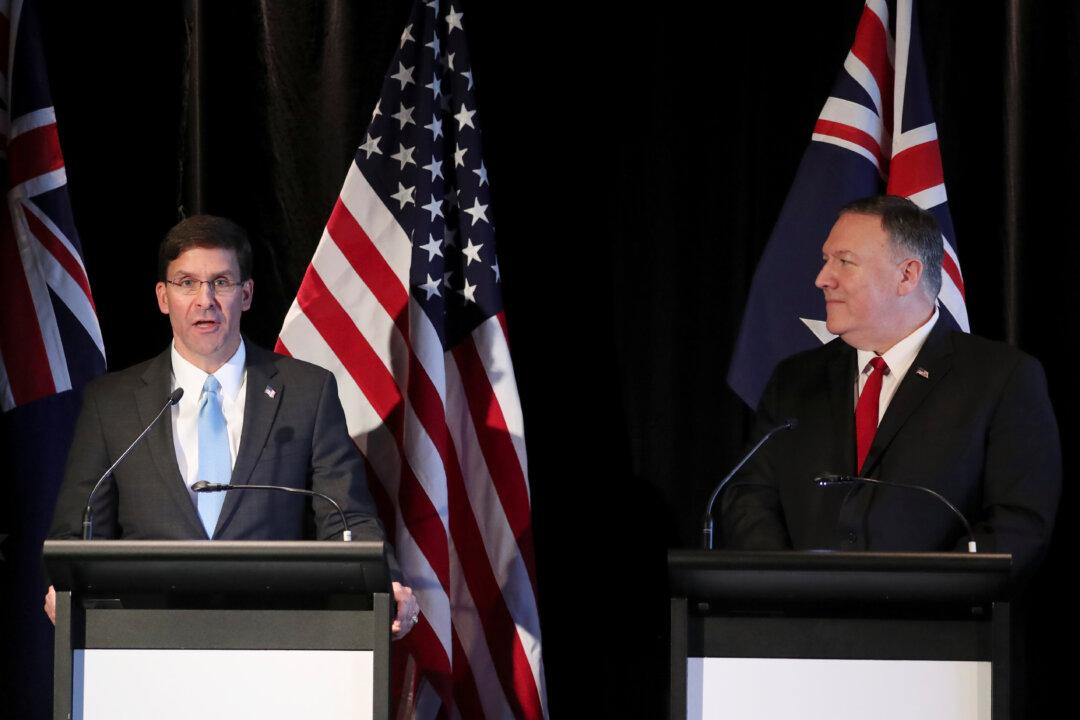China is destabilizing the Indo-Pacific, U.S. Defense Secretary Mark Esper said on Aug. 4, charging Beijing with predatory economics, intellectual property theft, and “weaponizing the global commons.”
The comments by Esper on his first overseas trip as U.S. defense secretary come amid heightened tension between Washington and Beijing as a result of an ongoing trade dispute.





